
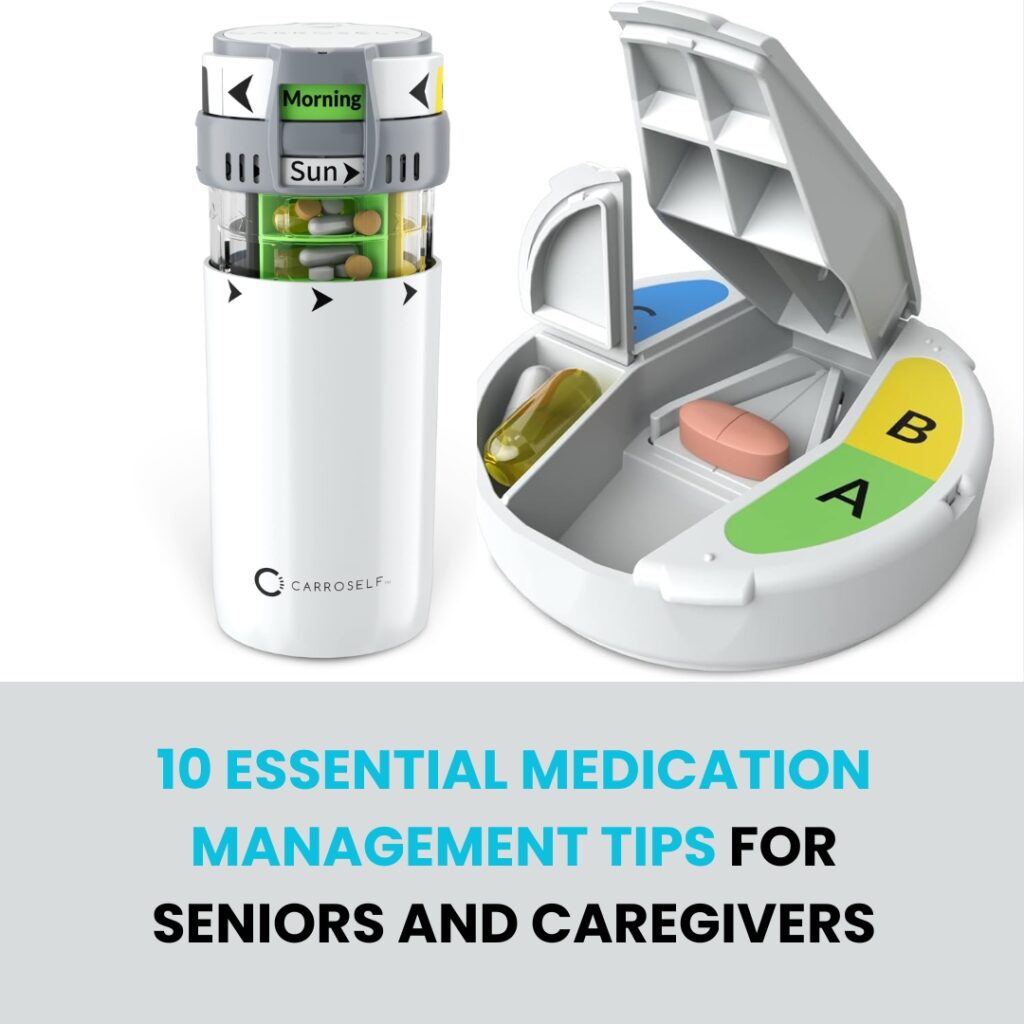
Taking care of your loved ones means protecting their health, safety, and comfort. This becomes challenging when it comes to taking medications. With age, it becomes more difficult to take all prescribed medications in the right quantities and at the proper times. Something going wrong or a missed dose can be dangerous, so drug management is critical in older adults and their caregivers.
The best part? With the right equipment, such as a medication dispenser and easy-to-follow strategies, you can take the stress out of medication routines and make them work like clockwork. In this article, we’ll reveal ten tips to help seniors and their caregivers execute their medication routines wisely, avoid pitfalls, and establish a process that makes them work like clockwork.
Here are the best management tips for storing and using the medicines in the right way:
The most important part of managing medication is keeping an accurate list of all a senior takes. This list should include:
The name of each medication (brand and generic)
A full listing is helpful so that caregivers and healthcare professionals can review a senior’s medication regimens and cross-check for potential drug interactions.
Pro Tip: Save this list as a document on your phone or the cloud to quickly access it in an emergency.
These dispensers are helpful for seniors and their caregivers. Dispensers range from simple pill organizer boxes to high-tech gadgets with alarms and locks.
Here are several advantages of a medication dispenser:
Smart dispensers, for instance, take over the responsibility of dispensing pills for seniors with cognitive decline so that the correct dose of medication is dispensed at the right time without the risk of medication error.
Implementing a medication schedule that integrates a senior’s daily routine makes doses easier to remember. Try linking medications with routine activities, such as:
Pro Tip: Use a medicine management app to set reminders and monitor adherence. Certain apps permit caregivers to track medication consumption remotely.
Some medications can be contraindications for other drugs, causing adverse reactions. Seniors frequently take more than one prescription, so it’s important to:
Example: Certain medications for high blood pressure can interact dangerously with some pain relievers or herbal supplements like St. John’s Wort. Under no circumstances should medications be added without the consultation of a healthcare professional.
Storing medications can diminish their effect. To maintain their potency:
Every caregiver should regularly visit a doctor or pharmacist to review a senior’s medication schedule. Medications may no longer be required, or dosages may need to be modified over time.
When conducting these reviews, ask:
Helping seniors understand their medications puts them in the driver’s seat of their health. Review the following:
Pro Tip: Make a chart with photos of each pill, its name, and the reason for ingestion. This visual guide can assist seniors in identifying and remembering their medications.
For seniors, the drugs can have life-altering side effects. What caregivers can watch for:
If side effects seem problematic, see a doctor right away. You may need to make adjustments to avoid complications.
Caregivers should plan ahead when traveling or preparing for the unexpected:
An emergency medication plan helps seniors stay safe and compliant with their medication plan no matter where they end up.
Get family members, friends, or home caregivers involved to share the load. Options include:
Pro Tip: If you are overwhelmed with the burden of caregiving, you can hire a professional home care aide to assist with medication and the routine tasks of daily living.
Medication management is one of the most vital ways to maintain seniors’ good health. Using the medication dispenser, establishing a daily routine, and paying close attention to the possibility of drug interactions will all assist caregivers in safely and successfully administering medications to their loved ones.
Whether you’re the caregiver wanting to organize better or a senior seeking independence, medication management tips like implementing these will provide peace of mind and better health outcomes.
Scroll down to find various solutions for your medication management with Carroself’s best smart pill dispensers.
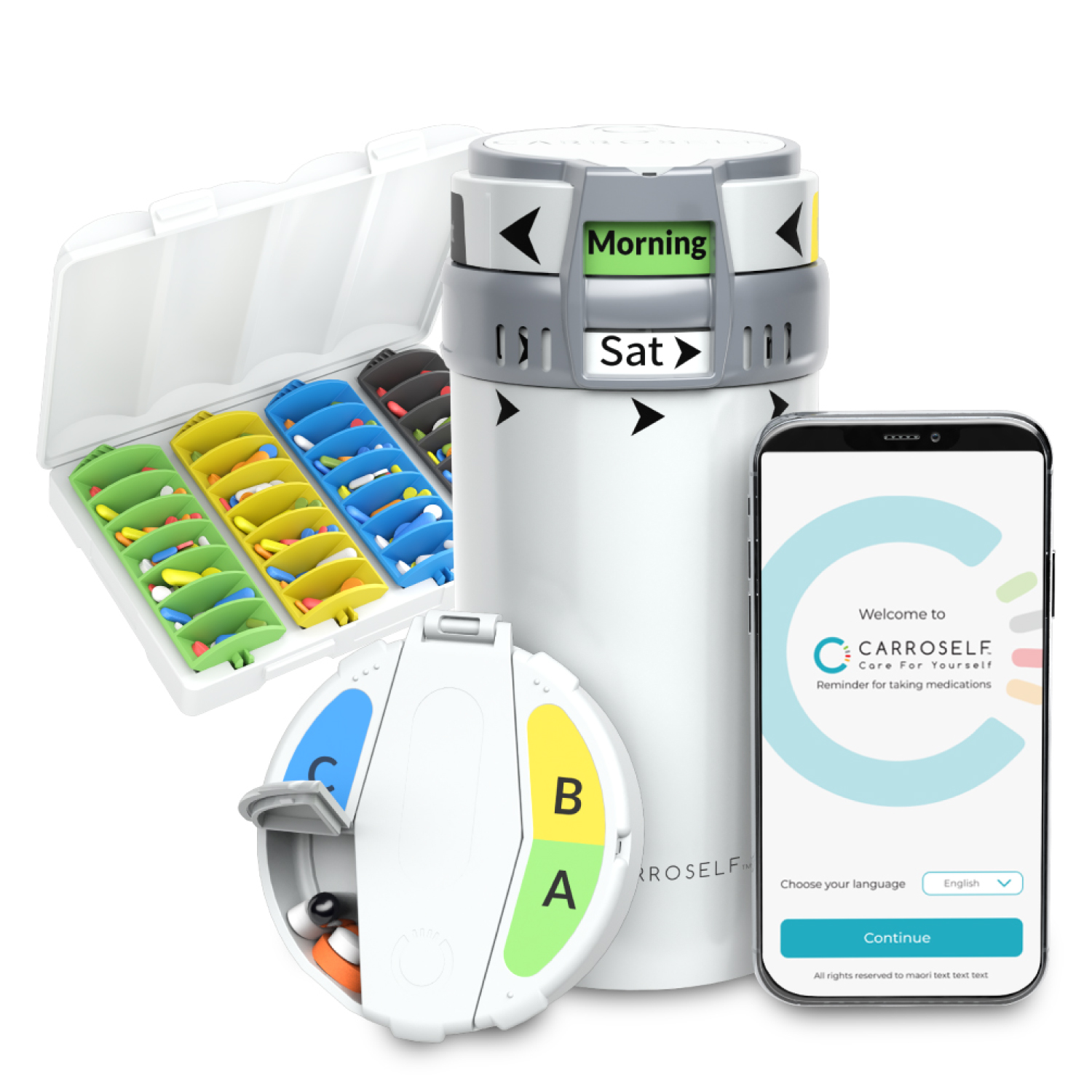

The Hidden Price of Forgetting Your Medications: Why Missing a Dose Can Cost More Than You Think

Best Ways to Remember Your Medication Every Day and Avoid Health Risks
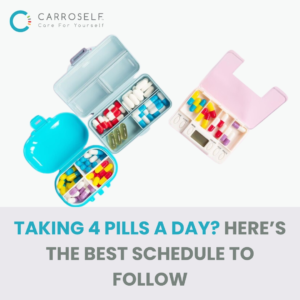
Taking 4 Pills a Day? Here’s the Best Schedule to Follow

How to Keep Track of Your Medicines and Time if You Have Dementia
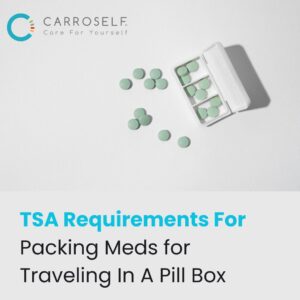
TSA Requirements For Packing Meds for Traveling In A Pill Box
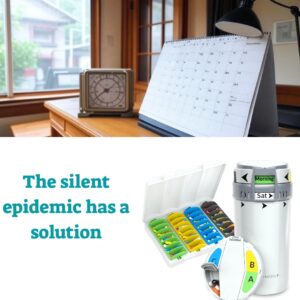
The Silent Epidemic of Medication Non-Adherence: A Growing Concern with Practical Solutions



The Hidden Price of Forgetting Your Medications: Why Missing a Dose Can Cost More Than You Think

Best Ways to Remember Your Medication Every Day and Avoid Health Risks
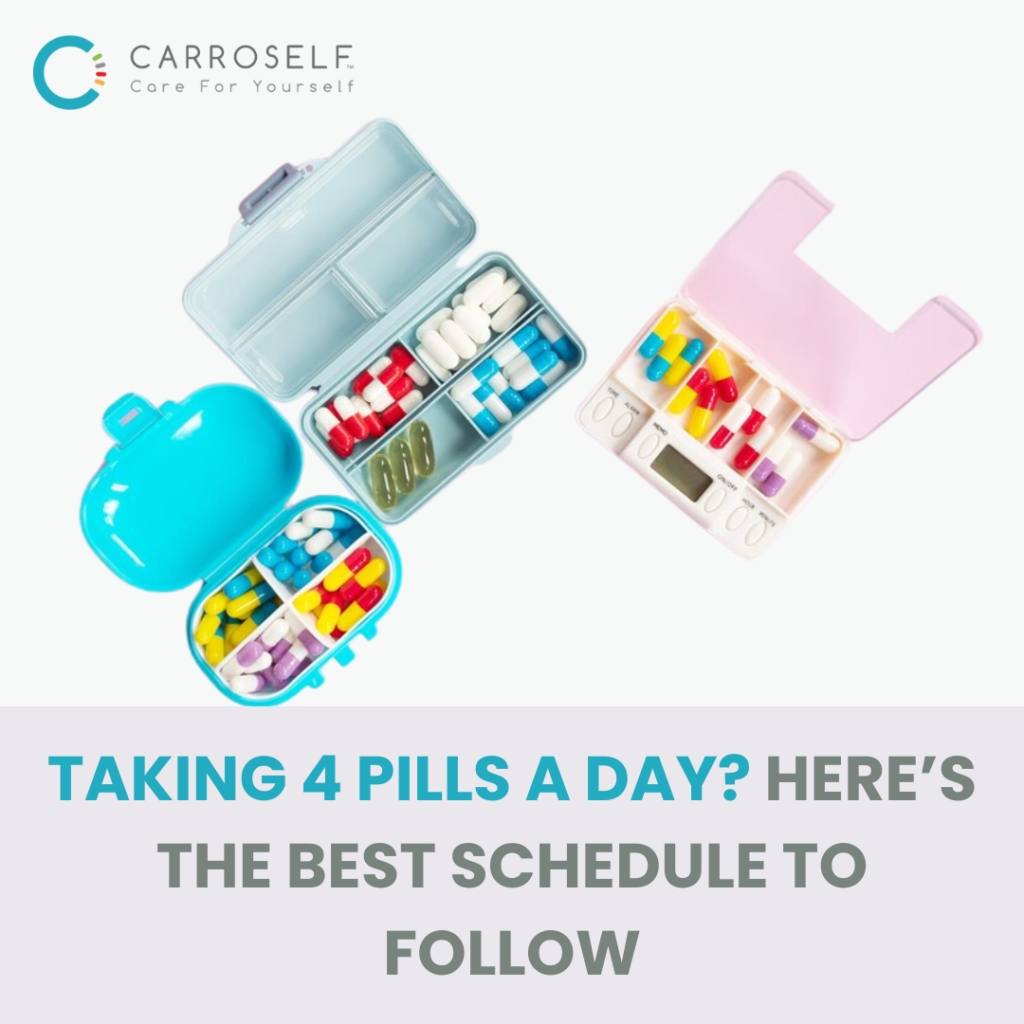
Taking 4 Pills a Day? Here’s the Best Schedule to Follow

How to Keep Track of Your Medicines and Time if You Have Dementia

10 Essential Medication Management Tips for Seniors and Caregivers